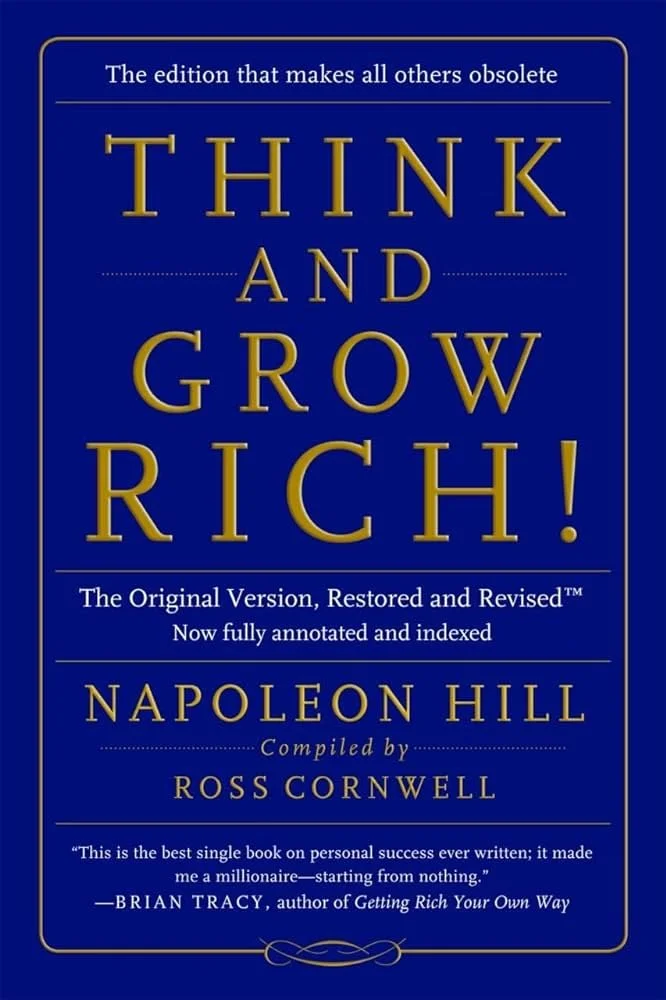The Intelligent Investor: 11 Essential Lessons for Every Investor
Benjamin Graham’s The Intelligent Investor is hailed as one of the most important books ever written on investing. Published in 1949, it has stood the test of time and remains a cornerstone of value investing, influencing countless investors, including Warren Buffett, who famously described it as "the best book about investing ever written." In this post, we will highlight 11 essential lessons from The Intelligent Investor that every investor should understand and apply to achieve long-term success.
11 Essential Lessons for Every Investor
Investing vs. Speculating: One of the first distinctions Graham makes is between investing and speculating. Investing involves a thorough analysis of a company, to ensure a margin of safety, and aim for long-term returns. Speculating, on the other hand, is more akin to gambling, focusing on short-term gains with little concern for the underlying fundamentals. Graham emphasizes the importance of being an investor rather than a speculator if you want to build sustainable wealth.
The Concept of ‘Margin of Safety’: The margin of safety is perhaps the most important concept in The Intelligent Investor. It refers to the difference between a stock's intrinsic value and its market price. When you buy stocks when they are undervalued, you create a cushion that protects you from errors in judgment or market volatility. This margin of safety is your defense against potential losses and is a fundamental principle of value investing.
The Market as Mr. Market: Graham introduces the allegory of Mr. Market to explain market fluctuations. Mr. Market is your business partner who offers to buy or sell shares based on his mood. Sometimes he's euphoric, offering high prices, and other times he's depressed, offering low prices. The key lesson here is not to be swayed by Mr. Market's emotions. Instead, take advantage of his irrationality by buying low and selling high, all while maintaining a long-term perspective.
The Importance of a Sound Investment Policy: Graham stresses the importance of having a clear, well-thought-out investment policy. This policy should be based on your individual goals, risk tolerance, and time horizon. Sticking to a disciplined approach will help you avoid the pitfalls of emotional decision-making and speculative behavior. A sound investment policy serves as your guide through the ups and downs of the market.
Avoiding Market Timing: Many investors fall into the trap of trying to time the market, buying low and selling high based on predictions about future market movements. Graham argues that this is a fool’s errand. Instead, he advocates for a consistent, long-term approach, where investments are made based on solid fundamentals, not short-term market trends. Avoiding market timing can help you reduce the risk of making costly mistakes.
The Power of Diversification: Diversification is a critical strategy for managing risk in your portfolio. Graham advises spreading your investments across different asset classes and industries to mitigate the impact of a poor-performing investment. Diversifying can ensure that no single investment can significantly harm your overall portfolio, which is crucial for long-term stability.
Be a Defensive Investor: Graham distinguishes between defensive and enterprising investors. A defensive investor aims to minimize risk and avoid significant losses, focusing on safe, established companies with a history of stable earnings. This approach requires less time and effort, making it suitable for most investors. The lesson here is that you don’t have to be aggressive or take high risks to achieve satisfactory returns; sometimes, playing it safe is the smarter choice.
The Danger of Overconfidence: Overconfidence is a common pitfall for investors, leading to poor decision-making and excessive risk-taking. Graham warns against the belief that you can consistently outperform the market or predict its movements. Recognizing the limits of your knowledge and abilities can help you avoid costly mistakes and make more rational investment decisions.
Earnings and Valuation Matter: Graham emphasizes the importance of focusing on a company’s earnings and its valuation relative to those earnings. Buying a stock solely because it’s popular or because its price is rising is a recipe for disaster. Instead, you should look for companies with solid earnings, trading at a reasonable price. This focus on fundamentals ensures that you’re investing in real value rather than speculation.
The Role of Bonds in a Portfolio: Bonds play a crucial role in providing stability and income to an investment portfolio. Graham recommends that conservative investors allocate a portion of their portfolio to bonds to offset the volatility of stocks. The exact allocation depends on your risk tolerance, but the principle remains the same: bonds can help balance risk and provide a steady income stream.
The Value of Patience and Discipline: Patience and discipline are recurring themes throughout The Intelligent Investor. Investing is not about making quick profits; it’s about building wealth over time. Graham advises investors to stay the course, remain disciplined in their approach, and avoid the temptation to chase trends or act on emotions. Being patient and sticking to your investment principles will increase your chances of long-term success.
Final Thoughts
The Intelligent Investor offers timeless wisdom that remains as relevant today as it was when the book was first published. Understanding and applying these 11 essential lessons can help anyone develop a disciplined, value-oriented approach to investing that will serve them well in any market environment. Remember, investing is not about getting rich quickly; it’s about building wealth steadily, with patience, discipline, and a clear understanding of the principles that drive long-term success.
Let us know what lessons from this book stand out for you in the comment section below. If you like this post, share it others and help us spread the insights. Thank you!





























